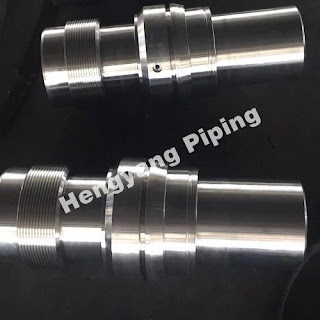Inconel 718 Forging Tubing Hanger: Strength and Durability for Demanding Applications
Tubing hangers are an essential component of oil and gas wellheads. They support the weight of tubing and control the flow of fluids from the wellbore. Due to the harsh conditions of drilling and production operations, tubing hangers must be made of high-strength and corrosion-resistant materials. Inconel 718 is one such material that has gained popularity in the oil and gas industry for its superior properties.
Inconel 718 is a nickel-chromium alloy that contains significant amounts of iron, niobium, and molybdenum. Its high strength and corrosion resistance make it suitable for use in extreme environments, such as high-pressure and high-temperature (HPHT) wells. Inconel 718 is also known for its excellent fatigue strength, which is crucial for tubing hangers that are subject to cyclic loading.
Forging is a popular method of manufacturing tubing hangers because it allows for the production of complex shapes with high strength and excellent metallurgical properties. Forging involves the application of pressure to a heated metal billet, causing it to take on the shape of a die. The result is a solid and dense metal component with improved mechanical properties compared to cast or machined parts.
Inconel 718 forging tubing hangers offer several advantages over other materials and manufacturing methods. Firstly, the high strength and excellent fatigue resistance of Inconel 718 make it ideal for HPHT wells where tubing hangers must withstand extreme conditions. Secondly, the superior corrosion resistance of Inconel 718 reduces the risk of material degradation and failure over time, ensuring the longevity of the tubing hanger.
In addition, forging ensures that the tubing hanger is free of defects, such as porosity or inclusions, which can compromise the integrity of the component. This is because the forging process aligns the metal grain structure, eliminating any voids or weak spots that may be present in cast or machined parts.
Another advantage of Inconel 718 forging tubing hangers is their ability to withstand sudden changes in pressure and temperature. In oil and gas drilling operations, sudden pressure spikes and temperature changes can occur, putting stress on the tubing hanger. Inconel 718's high strength and thermal stability make it less susceptible to deformation or failure under these conditions.
Furthermore, Inconel 718 forging tubing hangers can be customized to meet specific design requirements. This is because the forging process allows for the production of complex shapes with tight tolerances. Customization ensures that the tubing hanger fits seamlessly into the wellhead and can withstand the specific demands of the well.
Inconel 718 forging tubing hangers have been used in a range of applications in the oil and gas industry, including offshore drilling, subsea wells, and high-pressure gas injection wells. They have also been used in aerospace and power generation industries due to their high strength and excellent fatigue resistance.
In conclusion, Inconel 718 forging tubing hangers offer a range of benefits over other materials and manufacturing methods. Their high strength, corrosion resistance, and excellent fatigue resistance make them ideal for use in demanding applications, such as HPHT wells. The forging process ensures that the tubing hanger is free of defects, while customization allows for the production of complex shapes with tight tolerances. For these reasons, Inconel 718 forging tubing hangers are a popular choice for oil and gas companies looking for reliable and durable wellhead components.

评论
发表评论